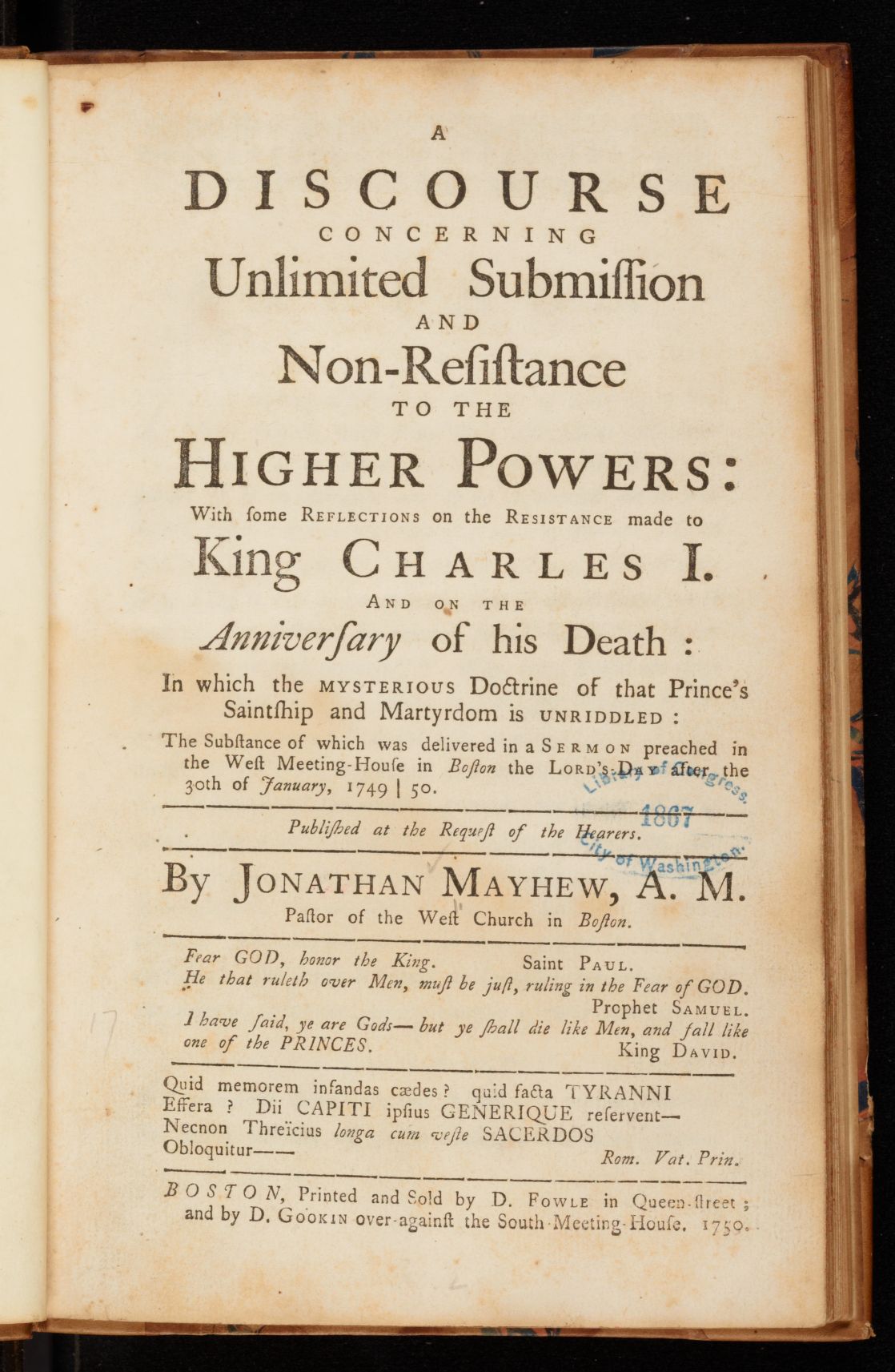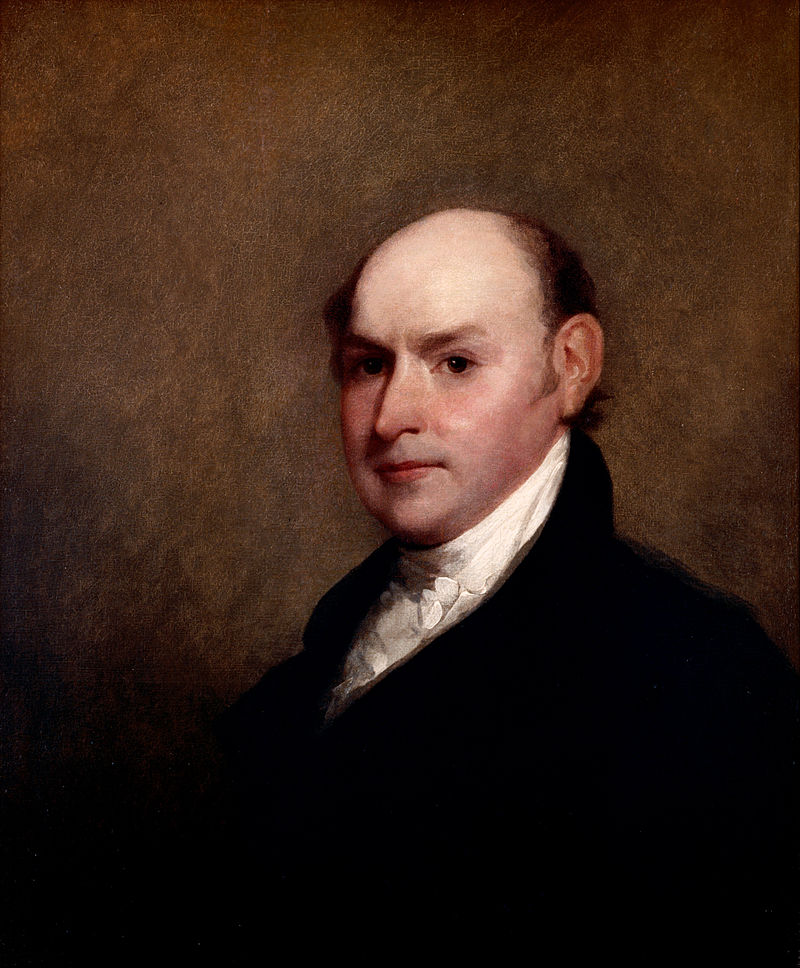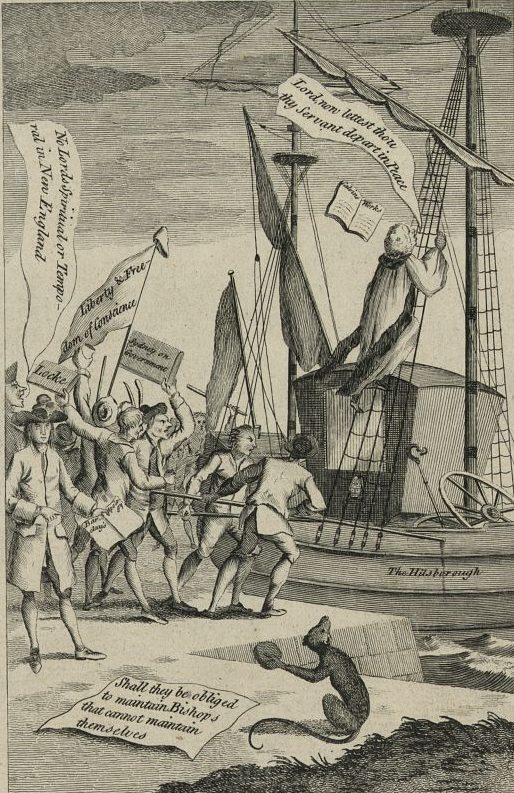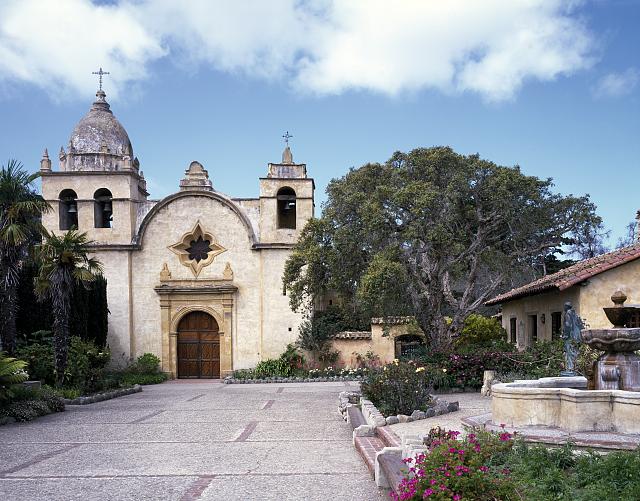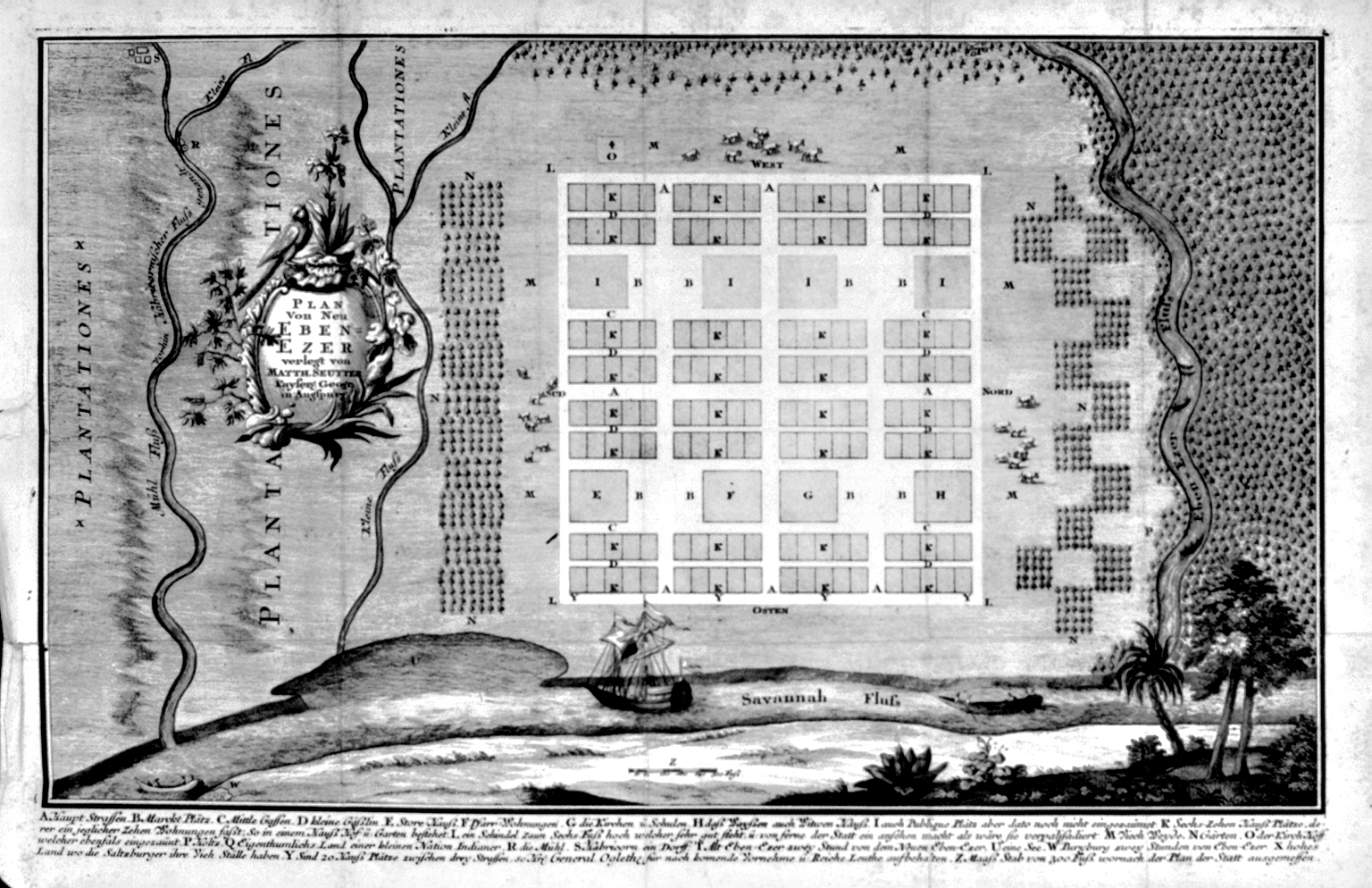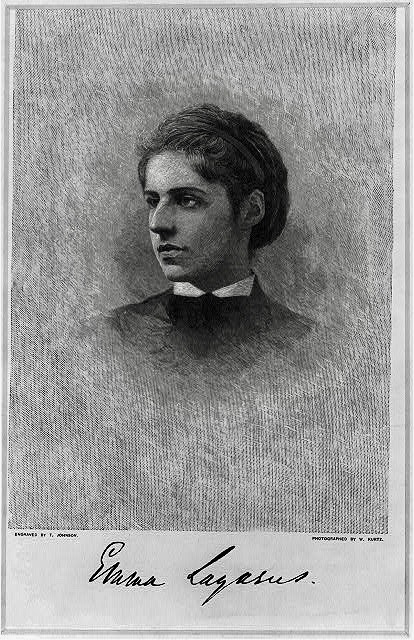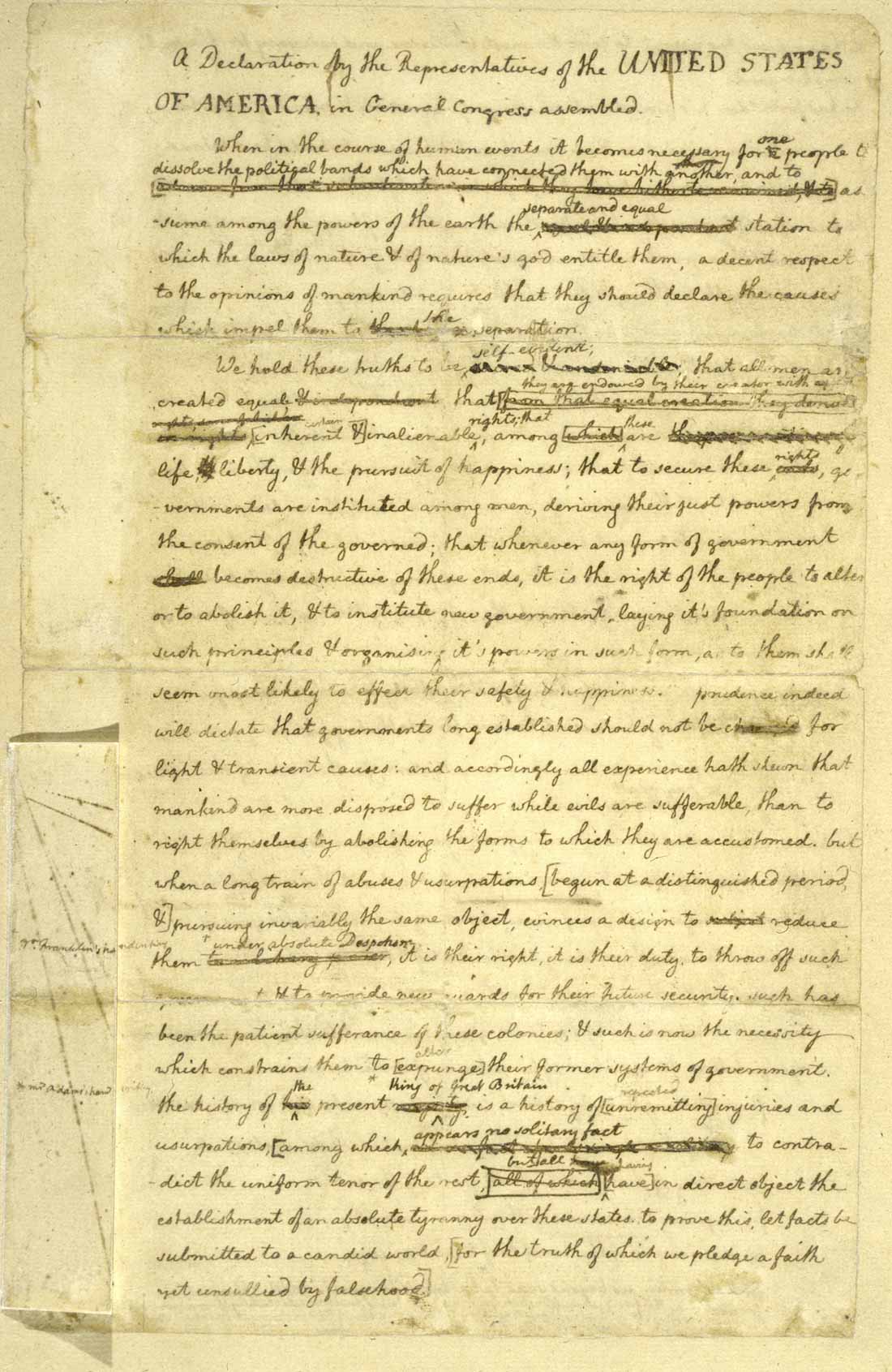Giving Thanks for the Constitution at New York’s Congregation Shearith Israel
Gershom Mendes Seixas
November 26, 1789
Gershom Medes Seixas, spiritual leader of New York City’s first Jewish congregation, responded to President Washington’s call for a National Day of Thanksgiving with an eloquent sermon. He exhorted Jewish citizens to actively engage in the political life of the new republic.
Gershom Mendes Seixas (1746-1816) served as spiritual leader of New York City’s sole synagogue at the time of the Revolution, Congregation Sherith Israel in New York. Officially the “hazzan” or chief reader and leader of synagogue prayers, Seixas performed a wide range of traditional rabbinical duties, at the same time earning the friendship and respect of many among New York’s Protestant clergy. He became known for his sympathy with the Revolutionary cause.
Hence, after the outbreak of war, and before and the British occupation of New York harbor on September 15, 1776, Seixas urged his small congregation to take refuge in a safer location. He led those congregants who shared his Patriot sympathies first to Stratford, Connecticutt and then, in 1780, to Philadelphia, where he took leadership of Congregation Mikveh Israel. In this exile from New York he carried with him the New York synagogue’s Torah scrolls: a symbolic gesture that linked the Patriot cause to survival of the Jewish faith in America.
In 1783, Seixas joined a committee of Philadelphia’s Jews in petitioning the new state legislator to modify a law barring Jews from holding office. Their request was not heeded until 1790, when Pennsylvania adopted a new Constitution granting Jews full civil freedoms. By that time, Seixas was again leading the New York congregation of Shearith Israel, to which he had returned in 1784, four months after the British evacuated the city. The New York State Constitution of 1777 had already granted Jews full equality. (Historian Isidore S. Meyer calls this “the first real act of emancipation for Jews in modern history,” noting Jews had nowhere enjoyed full citizenship rights since the third century reign of Roman Emperor Marcus Aurelius Antoninus Caracalla—who, other sources report, had extended the rights only to increase tax revenues).
In the fall of 1789 President George Washington, responding to a resolution of Congress, called for
a Day of public Thanksgiving and Prayer, to be observed by acknowledging with grateful Hearts the many and signal Favors of Almighty GOD, especially by affording them an Opportunity peaceably to establish a From of Government for their Safety and Happiness. . . .
On the day named, Thursday, November 26, Seixas led his own congregation in a service marking the occasion, delivering the following sermon. Quite likely, Christian friends of Seixas attended the service. Within a month, the New York Daily Gazette published a notice of the publication of the sermon, not authorized by Seixas but done at the request of citizens who had heard it.
Seixas’ sermon argues that a faithful people will necessarily give support to republican government if they first give what they owe to God: obedience and thankfulness. Part of being obedient, according to the Psalmist and to such prophets as Isaiah and Micah, is “doing justice”—and supporting the work of elective representatives to achieve justice. This duty is especially incumbent “when we are situated under the best of constitutions.”
Hence he calls for a new engagement by America’s then still tiny Jewish community—only 1300 to 1500 persons out of a population of nearly 4 million—in a political life that heretofore has been closed to them. Seixas draws parallels between the American struggle in the Revolution and the long history of Jewish exile, and relates the country’s current peace and independence to the Jewish hope of a return to Zion. As God’s chosen people, Jews bear a particular responsibility to demonstrate a just, amicable, and peaceful way of life in community, “unit[ing], with cheerfulness and uprightness, upon all occasions that may occur in the political as well as in the moral world, to promote that which has a tendency to the public good.”
In this, the sermon recalls Jonathan Winthrop’s exhortation to the group of Puritans he was leading to a new home in Massachusetts Bay Colony, “to keep the unity of the spirit in the bond of peace,” that they might “find that the God of Israel is among us.” Like Seixas, Winthrop reminded his flock that “we shall be as a city upon a hill. The eyes of all people are upon us,” so their conduct should model “meekness, gentleness, patience and liberality.”
Thanksgiving Day Sermon, November 26, 1789[1]
THE subject I have chosen to expatiate on this day, is taken from the three first verses of the 100th psalm, where we find King David, in a particular manner, address ALL inhabitants of the earth in these words—“Make a joyful noise unto the Lord, all ye lands,” and earnestly exhorts them “to serve the Lord with gladness, to enter into his presence with a singing.” In all exhortations of this kind, there are two things to be attended to: the one is the station, and the other the character of the person who undertakes the office of exhorter.
In respect to his station, you cannot but allow him to have filled the most eminent, the most dignified that human nature can boast of, for the sacred scripture mentions his both as a prophet and a king, and he is therein stiled the anointed of God. As to his general character, his writings are sufficient to evince his faith and hope in God; that he was pious, just, and upright in his ways, is incumbent on us to believe, as he was expressly called “the man after God’s own heart;” and when we view him both as a prophet and a king, we cannot but be sensibly affected with the endearing language he uses throughout his writings. Observe how tenderly he invites you to hearken to his instructions, in Psalm 34, v. 11– “Come ye children, hearken unto me, I will teach you the fear of the Lord.” Could he have called you in a more affectionate manner than by the name of children? Is there a tie in nature more binding than subsists in a parent towards his child? Surely not; if there was, no doubt he would have used it to express his tenderness to his fellow creatures. Possessed of all the principles of benevolence, he breathes forth love and peace to man; how strenuously does he recommend the practical duties of religion, and points out the many advantages that necessarily arise from a due observance of God’s holy law; and in Psalm 3, the last verse, he declares, “The fear of the Lord is the beginning of wisdom.” A knowledge of God, and his works, is the material principle he endeavours to inculcate; for immediately after his advising you to “serve the Lord with gladness,” he tell you the chief duty you owe to your Creator in these few words—“Know ye that the Lord he is God;” not with the authority of a despotic king to his subjects, or a master to his slave, but with persuasive language he intreats, in the gentle strains of consequence he intrusts, his voice is the voice of reason in its greatest state of perfection, and his arguments are universally acknowledged to be founded in truth and justice.
You may here ask, how is it possible for us finite beings to attain a knowledge of God? Are we endued with the faculties to comprehend that which is infinite? It is generally (though wrongly) asserted as a thing impracticable. But when we reflect on the wondrous works of his creation, that “the heavens declare the glory of God, and the firmament sheweth the works of his hands,” are we not most forcibly led to exclaim, with the royal psalmist, “How wonderful are thy works, O God!” It is only through the medium of these things that we can arrive at a proper knowledge of God, and from a study of ourselves, we become capable of forming suitable ideas of his divine attributes; from the providential care of his creaturs, we judge of his benevolence; from the manifestations of his tender mercies towards us, we judge of his beneficence; and from the various productions of nature, we judge of his omnipotence. A Being, possessed of such powers (and attributes) is forever to be adored; and we only comply with our duty, when we assemble, to render praise and thanksgiving for all his benefits towards us. The wonderful display of his divine providence, “in the course and conclusion of the late war;” the happy consequences derived therefrom, by an establishment of public liberty; the recent mercies conferred on these states, by the general approbation and adoption of the new constitution, are (ALL) blessings that demand our most grateful acknowledgments to the Supreme Ruler of the universe; more especially, as we are made equal partakers of every benefit that results from this good government; for which, we cannot sufficiently adore the God of our fathers, who hath manifested his care over us in this particular instance; neither can we demonstrate our sense of his benign goodness, for his favourable interposition in behalf of the inhabitants of this land, and for every other kind of dispensation bestowed both on them and us. What return can we make to so glorious a Being? How are we to shew our gratitude? King David himself, although inspired, seemed to be at a loss to express his sense of the obligations he acknowledged to have received, as you may find in Psalm 116 v. 12—“What shall I render unto the Lord for all his benefits towards me?” and the only mode he could devise, was by declaring he would publish the name of the Lord; as he says in the next verse—“I will take the cup of salvation, and call upon the name of the Lord:” that is, I will acknowledge the salvations, the benefits I have received, and publish the name of the Lord, to make known that he is the fountain of all good, the dispenser of all benefits. The acknowledgment of favors received by a dependent creature, is all the return he can make to his creator; the proclaiming that goodness to all men, the only thanksgiving in his power. It would be digressing too much from the subject to enumerate all the instances mentioned in the [sacred scriptures] to prove that this calling upon the name of the Lord means a publishing the belief of a God; teaching the world a knowledge of his glorious attributes; preaching faith and good works among the sons of men, in the manner as it is recited of Abraham; when, after he was called by God to quit the place of nativity, his kindred and the house of his father, that he went on his peregrinations, and at every place where he arrived, and pitched his tent; he built an altar unto the Lord, and called upon the name of the Lord, as you may find particularly in Genesis ch. 12, vs. 7 and 8; the belief of an eternal God had, in his day, almost become obliterated; by which means an immediate revelation was necessary to renew the knowledge of a true God. And Abraham not only taught his own offspring and houshold the tenets of his faith, but he was disposed to promulgate them to all mankind; for we find in Genesis ch. 18, vs. 17, 18 and 19 when the Lord was about to destroy Sodom and Gomorrab for the grievousness of their sins, that he said—“Shall I hide from Abraham that thing which I do, feeling Abraham shall become a great and mighty nation, and all nations of the earth shall be blessed in him; for I know him, that he will command his children, and his houshold after him, and they shall keep the way of the Lord, to do justice and judgment.” This knowledge of God has been progressively obtaining from the earliest ages of the creation; and though the greater part of the world were idolaters in Abraham’s time, still he persisted in his researches after truth, and by a steady faith and perseverance, he at last attained it, and, by his universal charity, communicated it to the rest of the world, inasmuch that it has now become almost universal, although the different nations of the earth do not altogether agree in their ideas respecting the Supreme King of Kings, still they maintain the essential doctrines of his holy law in point of morality; and in this enlightened age, we may reasonably hope to see our prophetic writings thoroughly fulfilled, that the knowledge of the Lord shall finally become so diffused and extensive as “the waters cover the sea.”
. . . It may not be amiss here to remind you of the situation we are now in, and what we were in antient times, whilst we rended in our own land, in that land which the Almightly sware unto Abraham, Isaac, and Jacob, to give unto them, and to their seed forever; at that time, when a man became conscious of having transgressed any of God’s holy commandments, either by commission or omission, he had an opportunity of making an atonement by sacrifice, which he carried to the Temple, either as a trespass or sin offering, according to the nature of his offence; the high priest, with the inferior order of priests were ever ready to attend any one who applied for expiation; and by an humble confession of the sinner, and a promise of amendment, his sin was forgiven. But, alas! through the multitude of our sins, and the sins of our ancestors, we are brought into this deplorable captivity, where we have neither temple, altar, or priest, to make atonement for us; nor have we any other means of imploring the Divine Favor but by words and deeds, which we find were earnestly recommended by the latter prophets, as may be seen in the book of Hosea, ch. 14, v. 2— “Take with you words and turn unto the Lord, say unto him, take away all iniquity, and receive us graciously; so will we render the calves of our lips.” This practice of public prayers was continued, after their time, by the heads of the great Synagogue, and from them in a regular descent to us, by which we are enabled to offer up our supplications to our Creator, to render praise and thanksgiving to him for all his tender mercies towards us; and in the language of King David will I say, “I will offer unto thee the sacrifice of thanksgiving, and I will publish the name of the Lord.”
The practical duties of our holy religion are to be found in almost every part of the sacred scriptures; but from an habitual negligence of applying to them, in the occurrences of human affairs, mankind becomes depraved. Attend only to what is said by our divine legislator Moses, in Deuteronomy ch. 10, vs. 12 and 13, in these words, “And now, Israel, what doth the Lord thy God require of thee—but to fear the Lord thy God, to walk in all his ways, and to love him, and to serve the Lord thy God with all thy heart, and with all thy soul, to keep the commandments of the Lord, and his statutes, which I command thee this day for good” . . . .
From these instructions, we are led to reflect on the great and glorious author of our existence. How does the human mind become elated with the idea of being worthy his providential care! It is then we discover the dignity of ourselves; then it is that we may truly say with Job, who, after he had suffered almost every temporal evil, exclaimed, “And from my flesh I see God;” meaning thereby, that the formation and construction of our natural bodies were manifest evidences of a God: for what power, except the omnipotent self-existing Being, could ever have formed to compleat, so complex a creature as man; endued with all the benevolent and social virtues, yet subject to the most flagrant vices, vices that are productive of destruction, both of body and soul. Man is to be viewed in two different states with respect to God, the comparative and the relative. When in the comparative, what are we? what are our lives? what are our actions? how mean! how insignificant! But when we consider the relative state we stand in towards God, that he hath formed us after his own image, how important, how dignified do we appear! Capable of reasoning on things both present and absent; searching into the mysterious operations of nature; exploring the works of an almighty Providence, in enabling the human mind to contemplate futurity; improving and increasing in knowledge; possessing faculties to comprehend the movements of the heavenly spheres, thereby admitting the necessity of a great first cause, determining rules of right, judging of things proper or improper according to their various degrees.[2] How grateful therefore ought we to be to our Maker! Who hath of his own good-will, and not from any merit in us, bestowed on us such precious gifts; gifts that we cannot but be sensible of every moment of our lives. As we confess in our daily prayers, (in these words)—“For thy miraculous providence which is daily with us, and for thy wonders and thy goodness which are at all times, evening, morning and noon, exercised over us,” for all which, we are loudly called on, to render praise and thanksgiving, as it is expressed in Psalm 13, v. 6, “I will sing unto the Lord, because he hath dealt bountifully with me.”
But amidst your rejoicings, it is necessary that you still keep in remembrance, that “the Lord he is God, that he hath made us, that we are his, even his people, and the sheep of his pasture;”[3] consequently, as we are his peculiar treasure, we are at all times, and upon all occasions, bound to obey every rule that he hath ordained; to place our hope and dependence on him, by which we may obtain his blessing, as it is said in Jeremiah, ch. 17, v. 7—“Blessed is the man that trusteth in the Lord, and whose hope the Lord is;” to rest assued of his tender mercies; for in Psalm 145, v. 9, you will find these words—“The Lord is good to ALL, and his tender mercies are over ALL his works.”
As an earthly king is ever watchful over his subjects, and a parent over his children, seeking their peace and prosperity, endeavouring to accomplish their happiness, so is the Almighty ever watchful over his people; providing bountifully for their natural wants, continually inspecting their conduct, as it is written (in Psalm 33 vs. 13 and 14) “the Lord looketh from Heaven, he beholdeth all the sons of men; from the place of his habitation he looketh upon all inhabitants of the earth,” rewarding and punishing them according to their merit or demerit; slow to wrath, but not entirely acquitting; his anger endureth for a moment, but his mercies are everlasting; from his efficient grace, pointing out the road of salvation through the medium of his prophets; inviting sinners to repentance, as may be seen in the book of Jonah, in a very particular manner; when the inhabitants of that great and famous city of Nineveh had become heinous sinners in the sight of God, he ordered Jonah on an embassy to them, to exhort them to repentance and amendment, with assurances of forgiveness if they would forsake their evil practices; they were soon convinced of their folly and wickedness, and immediately devoted themselves to fasting and prayer. It is here necessary to remark, that faith alone is insufficient to procure salvation, for we find the Almighty only had respect to their actions; they ceased to do evil, and sought after that which was good. This was pleasing to the Lord, and he spared the city on which he had denounced destruction, agreeable to holy-writ, where it is said—“He that confesseth and forsaketh (his wickedness) shall find mercy.”
From the circumstances we are led to believe, that though we, by our sins and transgressions, as well as by the sins of our fathers, are involved in this captivity, yet we may, by an acknowledgment of our evil actions, find grace in the sight of our Creator, and again be restored to our own land; for this we have many strong assurances in the sacred writings from our first and greatest prophet, who was called the faithful servant of God, as you may find in Numbers (ch. 12, v. 7) and in Deuteronomy (ch. 34, v. 10) it is said of him—“There arose not a prophet since in Israel like unto Moses, whom the Lord knew face to face;”—from his time, even unto Malachi (who lived in the time of the second temple, and was the last of our prophets) the same assurances are given of our restoration, when that we should return unto the Lord with a contrite heart, a true spirit and sincere repentance; that he will then hearken unto our prayers and supplications, and cause us to be again established under our own government, as we were formerly; then shall the lost tribes of Israel be again embodied and united to the house of Judah, as represented in a figurative manner in Ezekiel, ch. 37. Then shall there be but one shepherd and one king to rule over them, as it is said in verses 24 and 25—“And David my servant wherein your fathers have dwelt, and they shall dwell therein, even they and their children, and their children’s children, for ever.” In a word, from the chapter to the end of the book, you will find a reference to that glorious day which every true Israelite looks for with anxious expectation; and in the 47th chapter, it is even mentioned of the stranger that sojourneth among you, that he also shall have inheritance in the land with the tribes of Israel. “In whatever tribe the stranger sojourneth, there shall ye give him his inheritance saith the Lord God.” This is an explicit proof that we shall be established under our own king—the Messiah, the son of David. . . .
These are assurances on which we may rely; they are the express declarations of infinite goodness. What a fore-taste of happiness; for who among God’s creatures can boast in the manner we may, that hath seen and felt the miraculous effects of his all gracious providence so often and so fully as we and our fathers; as Moses elegantly describes it in Deuteronomy ch. 4, vs. 7 and 8—“For what nation is there so great who hath God so nigh unto them as the Lord our God is in all things that we call upon him for. And what nation is there so great that hath statutes and judgments so righteous as all this law which I set before you this day.”
Let us only revolve in our minds the many different situations that we and our fathers have gone through since the time of our first progenitor among the Patriarchs; for so soon as the promise of the holy land was made unto him he became a sojourner therein, and in the course of four hundred years his posterity had been sojourners, and at last became mere slaves to a people who knew not the Lord; they were cruelly oppressed in bondage until they cried unto the Lord; who heard them from his holy habitation, and sent Moses and Aaron to redeem them; they were delivered from their oppressors, and were going to take posession of the promised land, but by their own evil actions they were involved in a forty years wandering in the wilderness, and after having been settled by Joshua, who was immediate successor to Moses, they again fell off from the service of God, and thereby incurred divine punishment. The Judges succeeded him until the time of Samuel, and then they rebelled against the majesty of their Maker, and desired an earthly king, who was given to them in wrath, as it is mentioned in the sacred scripture, and they were never at peace until the close of king David’s reign, which was of but short duration, for their proneness to evil always had the ascendancy. For we find, although king Solomon, particularly blessed with wisdom, built the temple according to divine directions, appointed an high-priest, consonant to the institution of the office, to perform the services thereof; and the inferior order of priests, with the singers and attendants, still a general defection soon took place, and they again became sinners in the sight of their Creator, who raised up an instrument of vengeance against them in the person of the Assyrian king, who took many of our brethren captives, and sent them into distant countries, as you may find in 2 Kings, ch. 17 and 18. Where they are not known by any among us, even at this day; and there remained only the tribes of Judah and Benjamin, with the priests and Levites, who were either in their respective offices, or had inter-married with these tribes, who were all accounted as one tribe only, as it is written in the 18th verse of the 17th chapter of the second book of Kings, in these words—“Therefore the Lord was very angry with Israel, and removed them out of his sight; there was none left but the tribe of Judah only.” Nor did they long refrain from following the evil examples of their captive brethren, for we find that a few years afterwards the Babylonish captivity took place, where they remained seventy years, until the time of Cyrus the Persian king, who liberated them from their captivity, made them many valuable presents, and restored to them a considerable number of things that belonged to the sacred temple, as you may find at large in the book of Ezra, they were re-established in their possessions, they rebuilt the temple and renewed the services pertaining thereto, which they contained until the final destruction made in Vespasian, in consequence of their abominations; in a word, they were always so refractory, that they were seldom at peace; but whenever they returned unto the Lord, and repented them of their sins, they were sure to find mercy. From that period even till now, our predecessors have been, and we are still at this time in captivity among the different nations of the earth; and though we are, through divine goodness, made equal partakers of the benefits of government by the constitution of these states, with the rest of the inhabitants, still we cannot but view ourselves as captives in comparison to what we were formerly, and what we expect to be hereafter, when the outcasts of Israel shall be gathered together, as it is said in Isaiah, ch. 27, v. 12—“And those who are lost in the land of Assyria, and the outcasts in the land of Egypt shall come and worship in the Lord in the holy mount of Jerusalem.” But unless we return unto the Lord and sincerely repent us of our sins and transgressions, as well our “private as those of a national nature,” we cannot rationally expect to see the accomplishment of the sacred text. How necessary is it therefore for us to unite in a general reformation of manners? Who knoweth but at this very moment, while we are yet speaking, we may be snatched hence from all the pleasures and allurements of this transitory state, to appear at the awful tribunal of divine justice, where every one must render an account of his actions?
The many visitations of an almighty providence which we have experienced within these few years past, are sufficient indications, to a sensible mind that we are suffering under his displeasure. Awaken from your lethargy, and think, before it is too late, of your dependence on him, humble yourselves before him, and implore his mercy. I mean not to impeach the innocent victims that have been made, far from it, they suffer not; for as the royal psalmist says— “Precious in the sight of the Lord is the death of his saints;” and the prophet Isaiah says, “The righteous perish and no man layeth it to heart; and merciful men are taken away because of the evil. He shall enter into peace; they shall rest in their beds, each on walking in his uprightness.” But it is we that suffer; it is we that have cause to lament. Where now, ye youths, is the fostering hand of age and experience, to lead you through the slippery paths of life? In what manner can we comply with that excellent [exhortation] given to us by our faithful legislator, “Ask thy father and he will tell thee?” Who is to plead the cause of the widow and fatherless? Their cries are now in vain! We have lost our benefactors; we have lost those who, in cases of necessity, were ever ready to assist us with their advice and their interest.[4]—These, these are calamities that ought to humble you. Lay aside your pride and your vanities; strive to imitate the virtues of those worthy characters who are now no more. Be not lifted up above yourselves; but know, for a certainty, that he who exalts can depress. Let us not apply to ourselves that short but expressive sentence, “and forsook the God that made him.” Let us not have cause to reproach ourselves with neglect of duty: but do justice, execute judgement, and walk humbly before the Lord; for this is all that he requires.[5] Then shall we be able to sing and rejoice both in body and spirit, and truly say, “This is the day which the Lord hath made, we will be glad and rejoice therein.”
Then shall ye know that the Lord he is God, and that there is none other beside him. Then will be as it was in the time of Ahab, when there were no less than four hundred and fifty false prophets that offered sacrifices to Baal; and Elijah, of blessed memory, remained alone the faithful servant of our only true God—the God of Israel—as you may find at large in the first book of Kings, ch. 18. When, after the false prophets had invoked their idols for a length of time, as Elijah had proposed to them, and they received no answer to their supplications; then it was that Elijah built an altar with a trench surrounding it—he prepared a sacrifice, and ordered a considerable quantity of water to be poured upon the sacrifice, the wood, and the altar—the trench also was filled with water—and about the evening time of offering, he intreated the God of Israel to hear him, and make manifest his truth and his holiness; when, immediately after, the fire came down from Heaven, in the presence of all the people, consumed the sacrifice, the wood, and the altar, and even licked up the dust thereof, and absorbed the water that was in the trench; insomuch that the people saw the impositions they had suffered by the wickedness of their then rulers, and, as if universally inspired, they fell upon their faces, and with one voice cried out—the Lord, HE is the God!—The Lord, HE is the God!
From the foregoing, you will naturally observe the duties we owe our Creator: it now remains to point out the duties which we owe to ourselves, the community to which we belong.
In the first place, it is necessary that we, each of us in our respective stations, behave in such a manner as to give strength and stability to the laws entered into by our representatives; to consider the burden imposed on those who are appointed to act in the executive department; to contribute, as much as lays in our power, to support that government which is founded upon the strictest principles of equal liberty and justice. If to seek the peace and prosperity of the city wherein we dwell be a duty, even under bad governments, what must it be when we are situated under the best of constitutions? It behoves us to use our utmost endeavours to suppress every species of licentiousness; to unite, with cheerfulness and uprightness, upon all occasions that may occur in the political as well as in the moral world, to promote that which has a tendency to the public good for, without a proper subordination to the rulers (either superior or inferior) no government can (long) exist.
And, secondly, from this mode of general government may be deduced the necessity of conforming to the established rules of particular societies: for, whatever is necessary to be observed in respect to the former, may be with the greatest propriety applied to the latter.
And lastly, to conclude, my dear brethren and companions, it is incumbent on us, as Jews, in a more especial manner (seeing we are the chosen and and peculiar treasure of God) to be more circumspect in our conduct [Isaiah, ch. 44, v. 8.]—that as we are at this day living evidences of his divine power and unity: so may we become striking examples to the nations of the earth hereafter, as it is mentioned in several passages of the sacred scriptures, and particularly in Exodus, ch. 19, v. 6. “And ye shall be unto me a kingdom of priests, and an holy nation;” meaning thereby that we should, in the latter days, teach the law to those who shall then enter into the covenant made with Abraham our father, for in him “shall all nations of the earth be blessed.” For this purpose, let me recommend to you a serious consideration of the several duties already set forth this day; to enter into a self-examination; to relinquish your prejudices against each other; to subdue your passions; to live, as Jews ought to do, in brotherhood and amity; “to seek peace and pursue it:”[6] so shall it be well with you both here and hereafter; which God, of his infinite mercies, grant.—Amen.
Notes
[1] Gershom Mendes Seixas, A Religious Discourse: Thanksgiving Day Sermon, November 26, 1789, edited with an introduction by Isidore S. Meyer (Jewish Historical Society of New York, 1977). Return
[2] Seixas here alludes to Psalm 8:3–8, as well as to elaborations of those verses by Renaissance writers such as Pico della Mirandola (see “On the Dignity of Man.” See also Shakespeare, Hamlet, II, ii, 294–298.) Return
[3] Psalm 100:3 Return
[4] Seixas seems to refer to Patriots who lost their lives during the Revolution. Return
[5] An allusion to Micah 6:8, Proverbs 21:3, and Isaiah 56:1. Return
[6] Psalm 34:14 Return
Citation
Gershom Mendes Seixas, A Religious Discourse: Thanksgiving Day Sermon, November 26, 1789, edited with an introduction by Isidore S. Meyer (Jewish Historical Society of New York, 1977).
